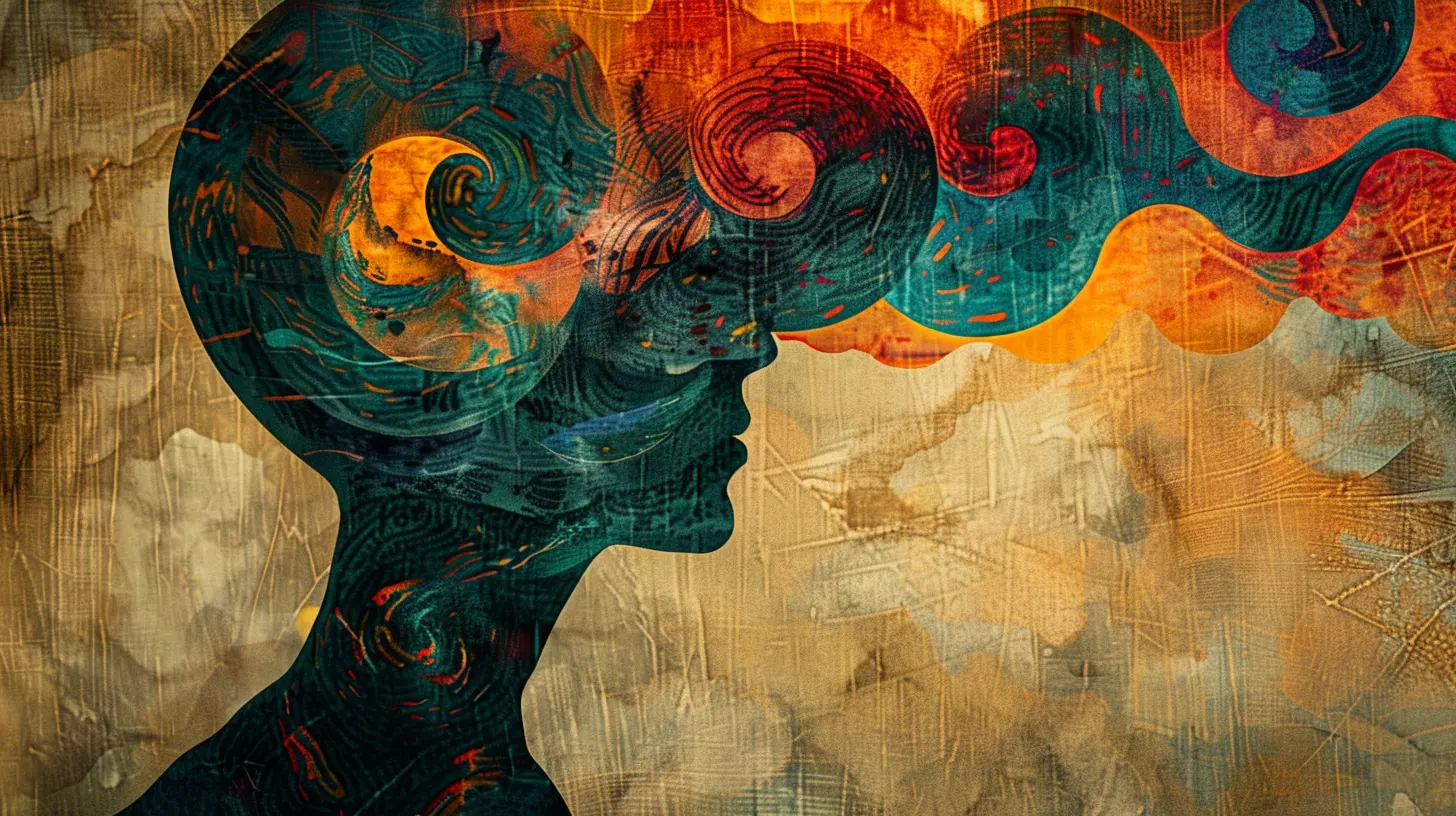Psychopathology and Psychoanalysis: Understanding Mental Illness Through Freud's Lens
29 May 2025
When we think about mental illness, many of us may picture therapists, medications, or even those quiet rooms with comfy couches. But how often do we think about where our understanding of mental illness really comes from? Enter Sigmund Freud. Whether you love him or find his theories outdated, Freud’s ideas about how the mind works—and sometimes doesn’t work—have shaped much of what we know about psychopathology today.
Psychopathology, at its core, is the study of mental disorders. And psychoanalysis, Freud’s brainchild, is a method of exploring the unconscious mind. Together, they give us a framework to understand not just disorders, but the complexities of the human psyche. So, let’s dive in and break down how Freud's lens can help us see mental illness in a whole new way.

What is Psychopathology?
Before we get into Freud’s theories, let’s clarify what psychopathology actually is. In simple terms, psychopathology is the study of behaviors, thoughts, and emotions that deviate from what’s considered "normal." Think of it as the science of understanding why people feel, think, or act in ways that cause them distress or interfere with their daily lives.But it’s deeper than just identifying disorders. Psychopathology also studies the development, symptoms, and possible causes of mental illness. And this is where Freud steps in with his psychoanalytic theory, offering a distinct lens to interpret these abnormalities.

Freud's Psychoanalytic Theory: The Basics
Sigmund Freud was a neurologist by training, but his real claim to fame? Being the father of psychoanalysis. He was the first to suggest that much of what drives human behavior is unconscious. Yep, that’s right—he believed that beneath the surface of our conscious thoughts lies a treasure trove of hidden desires, fears, and memories.You can imagine the mind as an iceberg. The tip above water is your conscious mind—the thoughts and feelings you’re aware of. But below the surface? That’s the unconscious. According to Freud, this is where the bulk of the action happens.
The Structure of the Mind: Id, Ego, and Superego
Freud broke down the psyche into three parts:1. The Id: This is the primal part of us. Think of it as the “wild child” inside you, driven by basic urges and desires. It wants what it wants when it wants it. The id is all about instant gratification.
2. The Ego: If the id is the wild child, the ego is the sensible adult. It tries to balance the desires of the id with reality. The ego helps us navigate the world by making decisions that keep us out of trouble while still satisfying some of our urges.
3. The Superego: This is the moral compass. It’s like the strict parent, always reminding you of what’s right and wrong. The superego aims for perfection and can sometimes make you feel guilty when you don’t live up to its high standards.
According to Freud’s theory, mental illness can arise when these three parts are in conflict. For example, if the id’s desires are too strong and the ego can’t keep them in check, you might engage in destructive behaviors or develop anxiety.

Freud’s View of Psychopathology
Freud believed that mental illness wasn’t random. Instead, he thought it stemmed from unresolved conflicts buried in the unconscious mind. He theorized that our early childhood experiences, especially those involving our relationships with our parents, play a significant role in shaping our mental health.The Role of Repression
One of Freud’s key ideas was repression. He argued that when we experience distressing or traumatic events, the ego pushes these memories into the unconscious. It’s like sweeping dirt under a rug—you can’t see it anymore, but it’s still there. And just like dirt, these repressed memories can cause problems if they aren’t dealt with.Freud believed that repressed memories and desires could manifest as symptoms of mental illness. For example, you might develop an irrational fear or phobia because of a traumatic event you don’t consciously remember. Or, you could experience anxiety because of unresolved feelings from childhood.
Defense Mechanisms
To protect ourselves from the anxiety caused by these unconscious conflicts, Freud suggested that we develop defense mechanisms. These are strategies the ego uses to avoid dealing with unpleasant emotions or thoughts. Some common defense mechanisms include:- Denial: Refusing to accept reality. For instance, someone who’s facing financial trouble might act like everything’s fine.
- Projection: Blaming others for your own feelings or shortcomings. If you’re feeling jealous, you might accuse your partner of being the jealous one.
- Displacement: Redirecting your feelings from the original source to something safer. You might take out your frustration with your boss on your family or friends.
Freud believed that mental illness could arise when these defense mechanisms are overused or ineffective. Imagine trying to hold a beach ball underwater—it’s possible for a while, but eventually, it’ll pop back up. Similarly, repressed emotions can resurface in the form of depression, anxiety, or other mental health issues.

Freud’s Psychosexual Stages of Development
Freud’s theories weren’t just limited to defense mechanisms and the unconscious mind. He also proposed that we go through a series of developmental stages, each centered around a different erogenous zone. These stages, known as the psychosexual stages of development, include:1. Oral Stage (0-1 years): Pleasure centers on the mouth. Freud believed that issues during this stage could lead to problems like smoking or overeating as an adult.
2. Anal Stage (1-3 years): Focus shifts to bowel and bladder control. Problems here might result in someone being too uptight (anal retentive) or too lax (anal expulsive).
3. Phallic Stage (3-6 years): The focus is on the genitals. Freud’s controversial Oedipus complex theory comes into play here, where boys develop unconscious desires for their mothers and view their fathers as rivals.
4. Latency Stage (6-puberty): Sexual feelings are repressed, and children focus on developing social skills and friendships.
5. Genital Stage (puberty-adulthood): Sexual desires resurface, and individuals seek mature, adult relationships.
Freud suggested that if a person became stuck, or fixated, at any stage, it could lead to specific personality traits or psychological issues in adulthood.
Psychoanalysis as a Treatment for Psychopathology
So, how does Freud’s psychoanalysis help people with mental illness? Freud’s method of treatment involved bringing repressed memories and unconscious conflicts into conscious awareness. He believed that once these hidden issues were out in the open, people could work through them and, hopefully, resolve their mental health problems.Free Association
One of the main techniques Freud used was free association. This involved patients lying on a couch (yes, the famous psychoanalytic couch!) and speaking freely about whatever came to mind. By allowing people to talk without censorship, Freud believed that repressed thoughts and feelings would eventually surface.Dream Analysis
Freud also placed a lot of emphasis on dreams. He believed that dreams were the “royal road to the unconscious.” In other words, our dreams were a way for our unconscious mind to communicate with us. By analyzing the symbols and themes in dreams, Freud thought he could uncover repressed memories and desires.Transference
Another key concept in psychoanalysis is transference. This occurs when the patient transfers feelings they have for important figures in their life (like their parents) onto the therapist. Freud believed that by analyzing these feelings, he could help patients understand their unconscious conflicts.
Criticisms and Legacy of Freud's Theories
While Freud’s theories have had a significant impact on psychology, they’re not without criticism. Some of his ideas, like the Oedipus complex and his focus on sexual development, are seen as outdated and overly focused on sex. Additionally, many argue that his theories lack scientific rigor and are difficult to test.That said, Freud’s work laid the foundation for much of modern psychology. Concepts like the unconscious mind, defense mechanisms, and the impact of early childhood experiences continue to influence therapeutic practices today. Even if we don’t take all of Freud’s ideas at face value, they’ve sparked important conversations about mental health and how we understand it.
Modern Psychopathology: Moving Beyond Freud
While Freud’s psychoanalytic theory was groundbreaking, modern understandings of mental illness have expanded far beyond his ideas. Today, we recognize that mental health issues are influenced by a combination of biological, psychological, and environmental factors. For example, genetics, brain chemistry, trauma, and social factors can all contribute to the development of mental disorders.That said, psychoanalysis has evolved into several modern offshoots, such as psychodynamic therapy, which still draws on Freud's ideas but incorporates more contemporary research and clinical practices.
Conclusion
Freud’s psychoanalytic theory offers a unique lens for understanding psychopathology. His ideas about the unconscious mind, defense mechanisms, and early childhood experiences have shaped the way we think about mental illness. While some of his theories may seem outdated or controversial today, his contributions to psychology are undeniable. By examining mental illness through Freud’s lens, we gain a deeper appreciation for the complexity of the human mind and the many factors that influence our mental health.all images in this post were generated using AI tools
Category:
PsychoanalysisAuthor:

Gloria McVicar
Discussion
rate this article
2 comments
Zailyn Roberts
This article effectively highlights Freud's foundational contributions to psychoanalysis, offering valuable insights into psychopathology. By exploring mental illness through Freud's lens, it encourages a deeper understanding of the complexities and nuances inherent in human psychology.
June 4, 2025 at 4:43 PM

Gloria McVicar
Thank you for your thoughtful comment! I'm glad you found the article valuable in exploring Freud's impact on our understanding of psychopathology.
Owyn Roth
Freud: because who wouldn’t want a dad's opinion on neuroses?
May 29, 2025 at 3:14 AM

Gloria McVicar
Freud's insights highlight the significance of familial influences on our psyche, emphasizing how parental dynamics shape our understanding of neuroses.


